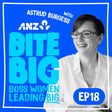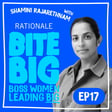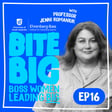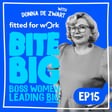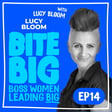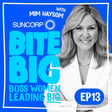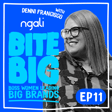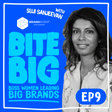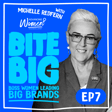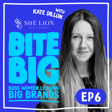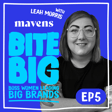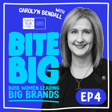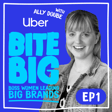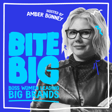
Amber Bites Big with Nataliya Senytsya - Co-Founder @Angel’s Care
In Episode 3, Amber Bonney Bites Big with co-host Nataliya Senytsya who is the founding partner of Angel's Care, as a not-for-profit Ukrainian bereavement organisation, Angel’s Care focusses on building skills for healthcare professionals and providing continuous support for families who have lost an infant.
Inspired by Amber's own Mantra, "bite big and chew like hell”, we delve into Nataylia's personal mantra, "You have a lot of light in you. Don't be afraid to shine" and discuss where this came from, and how it shows up in both her personal and business life.
In this candid interview, Nataylia opens up about grief and loss, and how her own experience led to her reframing vulnerability as a positive to allow for the good to re-enter, ultimately leading to the creation of Angel's Care - as Nataylia describes it, a safe space for people to share their pain together.
On behalf of Nataylia, Bite Big has donated $500 to her chosen charities, Angel's Care and Sands, a like-minded organisation based in Australia, offering support for parents experiencing bereavement due to the loss of a child.
If you would like to know more about our host Amber Bonney, her business The Edison Agency, or co-host Nataliya Senytsya, you can connect and follow these boss women via the socials links below!
Nataliya's LinkedIn
The Edison Agency's LinkedIn
The Edison Agency's Instagram
